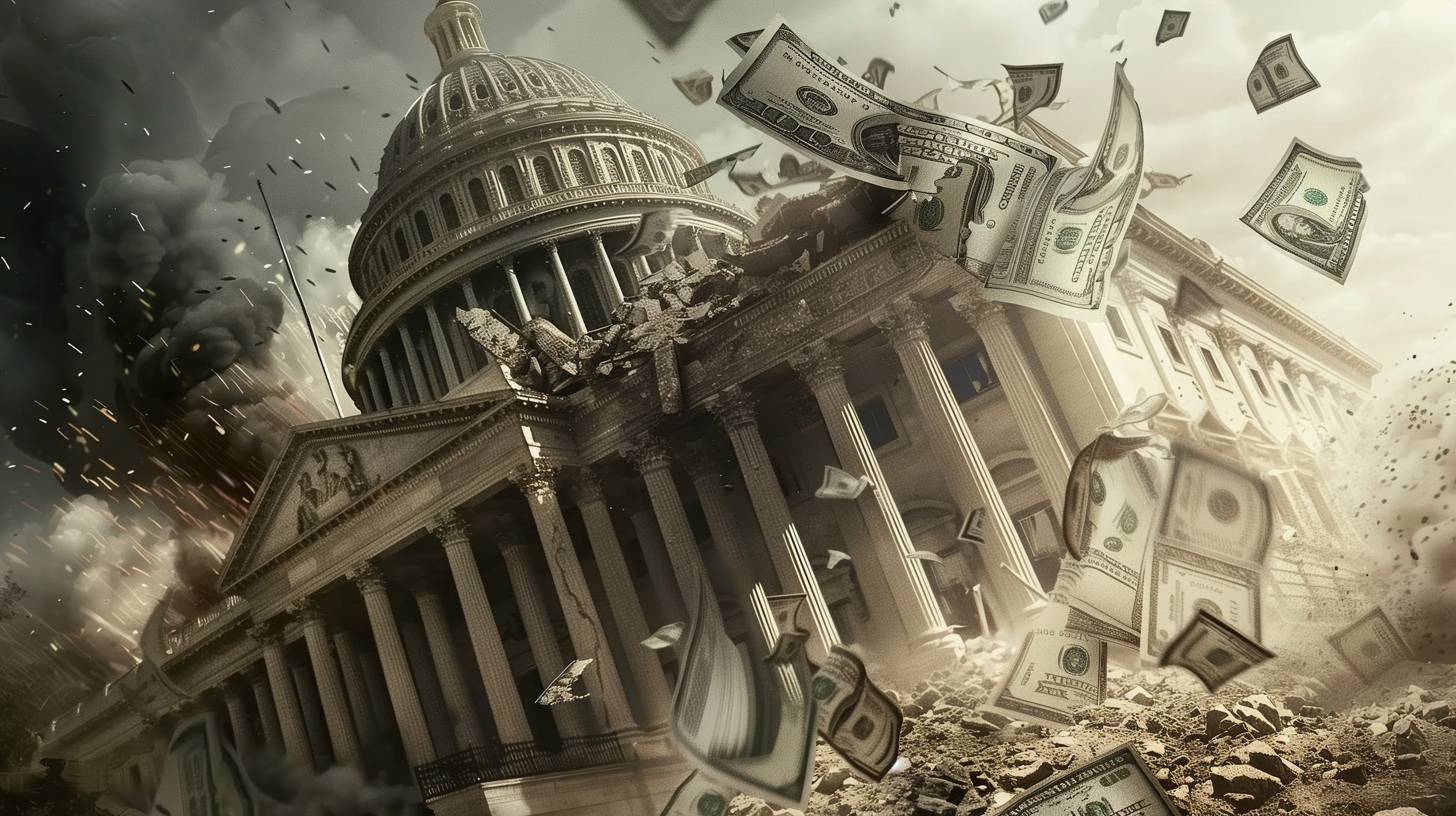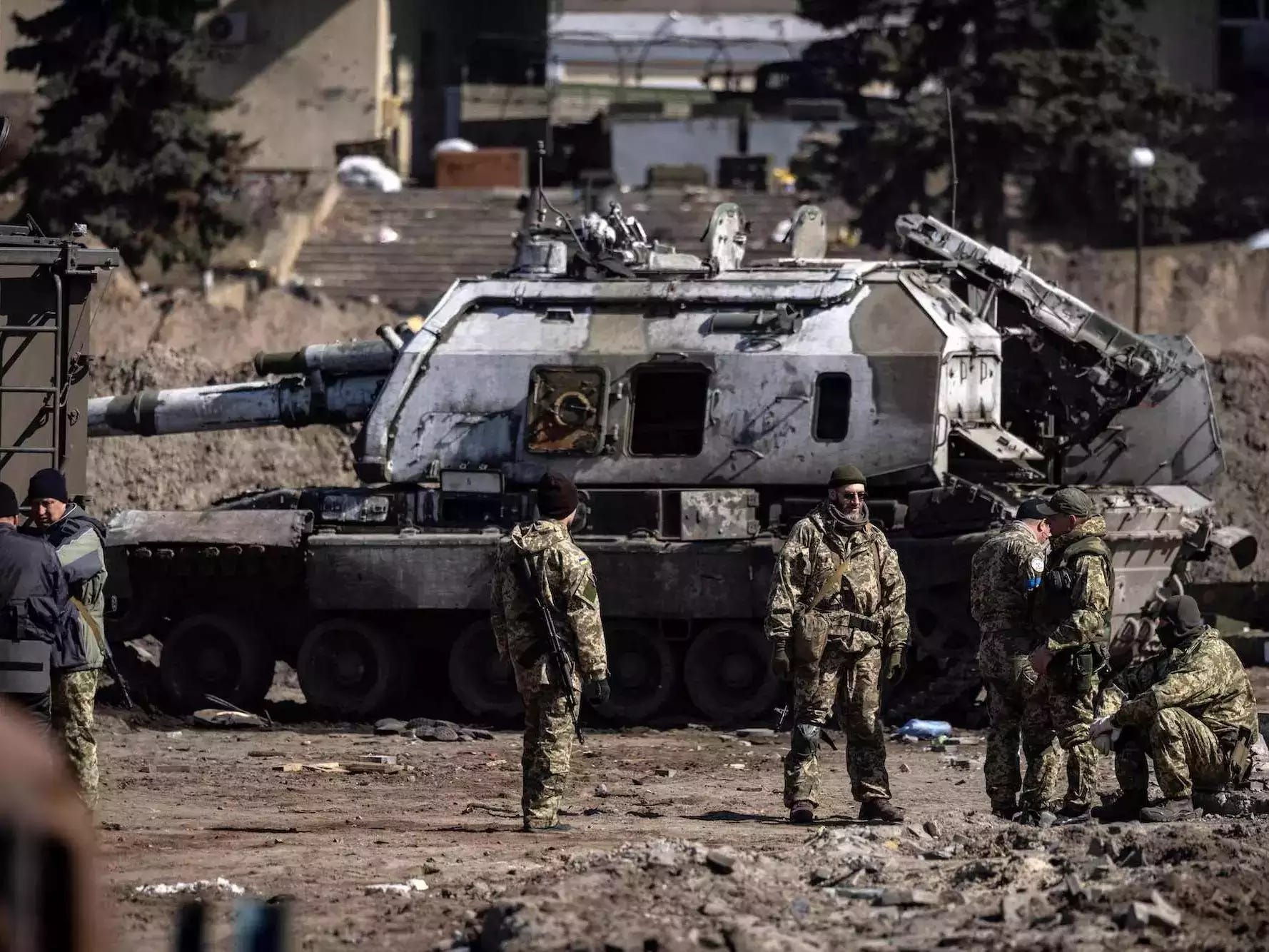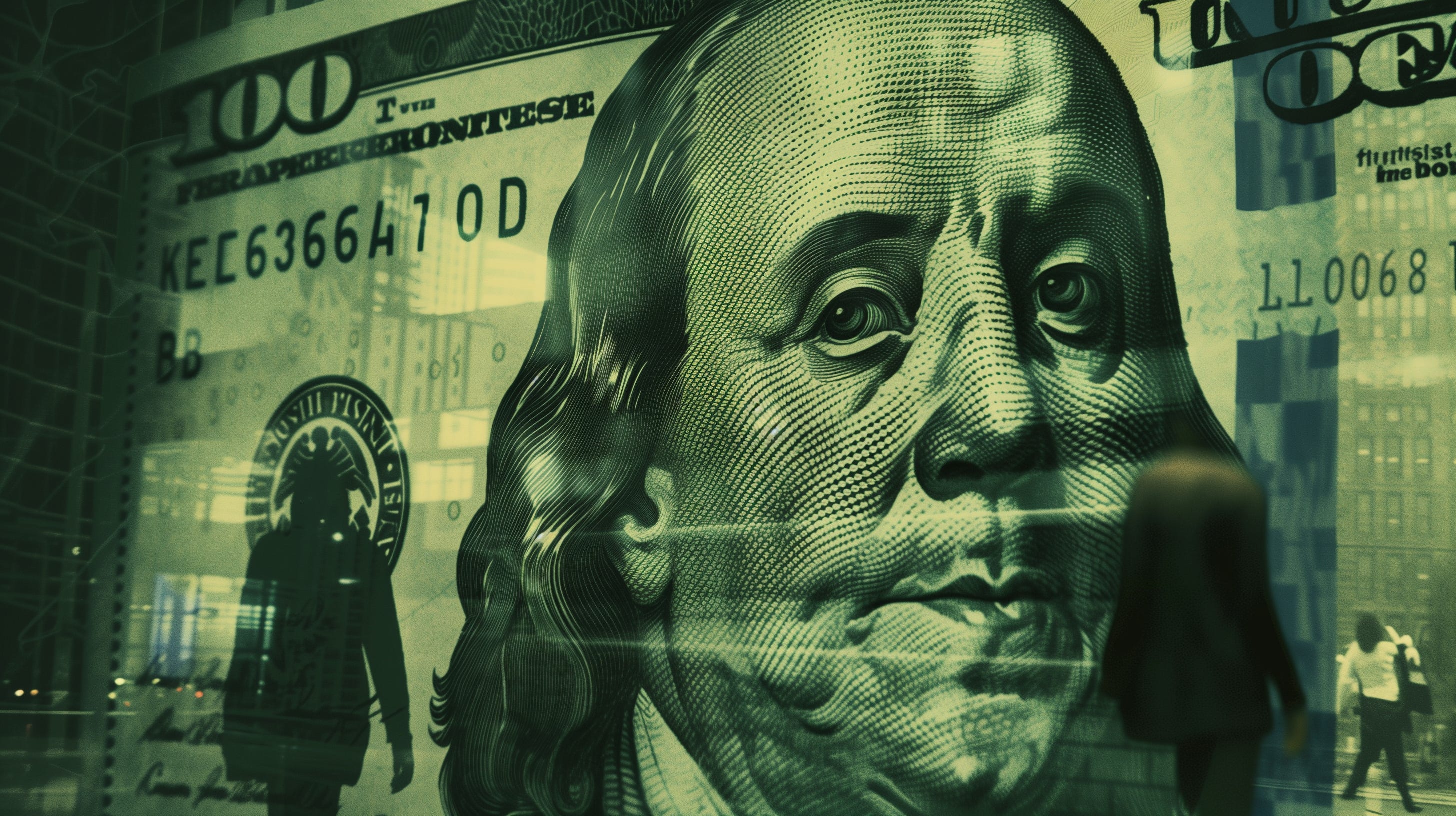Endless war, de-dollarization, circus justice, and empire collapse
@FractalBounce: June 18, 2024

The decline of empires has often been a multifaceted process, driven by a complex interplay of economic, political, and social factors. In the modern context, the United States faces similar challenges that have historically precipitated the fall of great powers. This analytical perspective delves into the interconnected roles of endless war, the shifting sands of de-dollarization, and the circus justice accelerating the decline of the U.S.
Unlimited funding of fiat money feeds the military-industrial complex while inflating the currency’s fragility, much like the overextension that doomed Rome. Together, these elements paint a troubling picture of an empire on the brink of decline, echoing the historical patterns of fallen hegemonies.
Endless War: Unlimited Funding Potential
Fiat money provides governments with the ability to finance wars without immediate fiscal restraint. Unlike commodity-based currencies tethered to finite assets like gold, fiat currencies can be conjured in boundless quantities. This lack of immediate fiscal restraint means that governments do not have to raise taxes or cut spending in other areas to fund military engagements. Consequently, this enables the ability to sustain prolonged conflicts without the same level of economic sacrifice or political backlash that would accompany more direct forms of war financing. The immediate availability of funds through the printing of fiat money removes a significant barrier to warfare, enabling extended military campaigns that can endure for years, even decades.
A recent example of this perpetual conflict machine is the $95 billion “aid” package to Ukraine, Israel, and Taiwan. This enormous sum largely benefits oligarchs, with a significant portion to be likely unaccounted for or misappropriated. The remaining funds directly stoke ongoing conflicts. In Ukraine, billions of freshly minted debt dollars sustain NATO’s aggressive posturing, despite widespread opposition among European and American citizens to such meddling in Eastern Europe and Russia. In Israel, substantial funds support a militarized state that continues to oppress people confined to refugee camps, actions that are increasingly condemned globally.
The populace, both in the United States and globally, questions why they must shoulder the financial burden of these wars for generations while domestic infrastructure crumbles and societal wellbeing plummets. The U.S. faces numerous crises: A border crisis, a fentanyl epidemic, rampant homelessness, and a failing healthcare system, particularly for veterans. These pressing domestic issues contrast starkly with the massive spending on foreign conflicts. Even the Speaker of the U.S. House of Representatives initially opposed the aid package. However, after intelligence briefings, Speaker Mike Johnson reversed his stance, citing moral and religious convictions—a clear indication of the deep state’s shadowy influence, which prioritizes war and military spending over national and global welfare.

These events underscore the inherent corruption within the system. Endless wars are not the result of a broken apparatus, as the fiat system was designed to generate perpetual war. The prioritization of endless conflict over domestic wellbeing exposes a profound flaw in the political and economic structures, driven by interests that facilitate war for profit and power, heedless of the human and societal costs.
Bailout War
As hyperinflation threatens to unravel the global economic system, those in power within the empire are desperate to inflate their way out of economic collapse while also maintaining their status as the global reserve currency and military superpower. The specter of world war looms large as a potential solution to their multifaceted crisis. Historically, significant conflicts have provided opportunities to reset economies and impose stringent controls on populations, and the current situation appears no different.
The potential for war is often the ultimate move in a failing economic system, unwinding gradually at first, then suddenly, much like a Ponzi scheme. When gaming out potential scenarios, the options for those in power become limited. War presents an opportunity to address their myriad problems simultaneously. It enables the imposition of draconian restrictions on the masses, to control misinformation and enforce compliance with societal norms dictated by the ruling class. The introduction of Central Bank Digital Currencies (CBDCs) further enhances this control, allowing kleptocrats to program unbacked digital fiat to ensure obedience and limit dissent.
Economically, war acts as a reset button. The initial destruction fuels demand for defense and weapons industries, driving short-term economic activity. Subsequently, the reconstruction efforts provide a secondary economic boost, creating jobs and stimulating growth. This cycle of destruction and rebuilding masks the underlying economic crimes of previous years, including systemic theft and exploitation. By catalyzing such a profound level of destruction, those in power seek to cover their tracks and justify their continued dominance in a restructured global order. In essence, world war becomes an inevitable strategic move to perpetuate influence and control, despite the catastrophic human and economic costs involved.
Political Incentives
Political incentives created by the use of fiat money play a crucial role in continuous war. Financing military operations through money printing, rather than through the overt act of increasing taxes, allows governments to sidestep the immediate political backlash from directly burdening citizens with the tangible costs of war. Tax hikes, ignite significant political resistance, whereas the indirect taxation effect of inflation is more insidious and less perceivable. This dynamic is particularly enticing to political leaders aiming to bolster their approval ratings or revive a sluggish economy. The capacity to fund wars through fiat money aligns seamlessly with political objectives, rendering it more convenient for governments to rationalize and sustain prolonged military engagements.
Corrupt Officials
The pervasive corruption among elected officials is evident in their financial entanglements with weapons manufacturers, defense contractors, and other special interest groups. These officials, once in office, are beholden to their benefactors, creating a uniparty system where both major political parties are subservient to the special interests that fund them with freshly printed fiat money. While their rhetoric may be tailored for public consumption, the actual policies they enact serve the interests of the bankers and military-industrial complex.
Policy makers often receive direct financial incentives or hold significant stocks in companies that benefit from their legislative decisions. This blatant conflict of interest ensures that policies are crafted to maximize profits for these corporations, rather than to serve the public good. The revolving door between industry and government exacerbates this issue, with CEOs from Wall Street are frequently appointed to government positions where they regulate their own industries. This symbiotic relationship fosters an environment where policy is shaped by those who stand to gain the most financially.
Organizations openly boast about their influence over American politicians and public perception. This control is facilitated by their access to virtually unlimited funds, stemming from their proximity to the money printer. The vast financial resources at their disposal allow for the shaping of policy and public opinion to their advantage, further entrenching their power and perpetuating the cycle of corruption. The result is a political landscape where special interests wield disproportionate influence, undermining the principles of democracy and subverting the will of the people.
Inflation as an Indirect Tax
Inflation operates as a shadowy tax on the general populace, subtly devaluing currency to finance war. When governments print more money to finance military efforts, the increased money supply reduces the value of the currency, leading to higher prices for goods and services. This devaluation effectively diminishes the purchasing power of individuals’ savings and incomes without the explicit imposition of taxes. As prices rise, the cost of living increases, disproportionately affecting lower- and middle-income households who spend a larger portion of their income on essentials. This stealthy form of taxation allows governments to fund wars while spreading the financial burden across the entire population. The resulting inflation erodes economic stability, contributing to financial hardship and societal discontent, ultimately highlighting the hidden cost of prolonged military engagements financed through fiat money.
Inflation Requires Deception
The inflationary nature of fiat money necessitates deception to sustain its use in funding wars. To maintain public support for these wars, governments rely heavily on propaganda, presenting a favorable narrative that obscures the true economic and social costs. Journalists are incentivized to echo government talking points rather than to critically examine and hold the government accountable for its actions. This symbiotic relationship between the media and the ruling class means that journalists, seeking to maintain access and favor, often act as propaganda arms of the government, disseminating misleading information and downplaying dissenting voices. As a result, the government is further incentivized to lie about the progress and justification of wars, covertly extracting money from taxpayers to sustain military expenditures. This systematic deception corrodes trust in public institutions and media, rotting the societal foundation and undermining democratic processes. In this manner, inflation not only bankrolls wars but also erodes the integrity and cohesion of society itself, leaving a trail of disillusionment and fractured communities in its wake.
De-dollarization
De-dollarization refers to the process by which countries reduce their reliance on the U.S. dollar as the global reserve currency, which is widely held by governments and institutions for foreign exchange reserves and used in international trade and financial transactions. The U.S. dollar has held this dominant role since Bretton Woods, which initially tied the dollar to gold and established it as the central currency of global finance. This dominance persisted even after the U.S. shifted to a fiat currency system in 1971, detaching the dollar from gold. To maintain this supremacy, the United States has employed various strategies, including military interventions and diplomatic pressures, to ensure global oil trade remains dollar-denominated and to prevent other currencies from challenging the dollar’s status. These efforts underscore the strategic importance the U.S. places on sustaining its currency’s global preeminence.

However, recent trends indicate a shift away from this dollar-centric system. Emerging economic powers and regional blocs are increasingly seeking to diversify their reserves and reduce their dependence on the U.S. dollar due to geopolitical tensions, U.S.-imposed economic sanctions, and a desire for greater economic sovereignty. Countries like China and Russia are promoting alternative currencies for international trade, and agreements among nations to use non-dollar currencies are becoming more common. These trends suggest a gradual erosion of the dollar’s dominance, potentially leading to a reorganization of the global financial system with significant ramifications for international relations and economic stability.
The Petrodollar
The term “petro dollar” refers to U.S. dollars earned by countries through the sale of their oil. The dominance of the U.S. dollar in global finance has been significantly reinforced by its central role in the oil trade. The U.S. made strategic agreements with major oil-producing countries to price oil exclusively in dollars. These agreements ensured that global oil transactions were conducted in dollars, cementing the currency’s dominance in international trade and finance.
The petrodollar system has had profound effects on the global economy. By stabilizing demand for the dollar, it has maintained the currency’s strength and liquidity. This system has enabled the U.S. to run large trade deficits without facing the same financial pressures as other countries, as there is a constant demand for dollars to purchase oil. Furthermore, it has solidified the dollar’s influence over global trade and finance, making it the primary currency for international reserves and transactions.
In Saudi Arabia, for example, there was an implicit understanding that the United States provides substantial military support and security services, valued at approximately $1 trillion annually. In exchange, Saudi Arabia prices its oil exclusively in U.S. dollars, compelling all countries that wish to purchase oil to hold and use dollars. This arrangement reinforces the dollar’s status as the global reserve currency and is replicated across numerous oil-producing nations, creating widespread reliance on the U.S. dollar for international trade. By ensuring that oil is traded in dollars, the U.S. can maintain the dollar’s dominance in global finance, perpetuating the cycle of dollar dependency.
On June 10, 2024, significant news broke regarding Saudi Arabia’s economic strategy. IT was reported that the country officially decided not to renew its 50-year-old petrodollar agreement with the United States, which had been in place since 1974. It is important to note that there was no official contract or agreement between the U.S. and Saudi Arabia that could expire and that the Saudis have been gradually reducing their exposure to the dollar.
The recent seizure of Russia’s assets by the USA and the EU has significantly undermined the trust that nations have in the U.S. dollar as a secure and neutral reserve currency. This action has highlighted the risks of holding large reserves in dollars, particularly amid geopolitical conflicts and economic sanctions. In response, members of the BRICS group (Brazil, Russia, India, China, and South Africa) and major oil producers like Russia and Iran have begun to explore alternatives for international trade and reserves, increasingly conducting transactions in their own currencies or other major currencies like the euro and Chinese yuan. China, the world’s largest oil importer, has promoted the use of the yuan in oil transactions, further challenging the dollar’s dominance. These moves are part of a broader strategy to reduce dependency on the dollar, enhance economic sovereignty, and mitigate risks associated with the politicization of the global financial system. If this trend continues, the demand for dollars could diminish, weakening the dollar’s value and impairing the U.S.’s ability to finance its deficits and exert economic influence globally.
Circus Justice
Circus justice is a distorted form of legal proceedings where public spectacle and political agendas take precedence over substantive justice. In this scenario, legal cases become media events, driven more by sensationalism than by a fair and thorough examination of the facts. High-profile trials, especially those involving celebrities or political figures, attract intense media attention, transforming courtrooms into stages for dramatic narratives rather than forums for impartial justice. This media frenzy skews public perception, influences juries, and places undue pressure on judges, ultimately compromising the integrity of the legal process. The focus shifts from achieving fair outcomes to generating headlines and viewership, scoring political points, eroding trust in the judicial system and undermining the principle of justice being blind and impartial.

The phenomenon of circus justice contributes significantly to the erosion of public trust in the judicial system. When political agendas and public spectacles overshadow the pursuit of justice, it fosters a perception of bias and unfairness. People begin to doubt the integrity and impartiality of legal institutions, believing that outcomes can be swayed by political connections, wealth, fame, or public pressure rather than by evidence and the rule of law. Diminishing trust undermines social cohesion, as faith in a fair and just legal system is foundational to social stability. When citizens no longer believe that justice is administered impartially, their confidence in other institutions and the overall governance of society weakens, further destabilizing the social fabric.
The Biden Crime Syndicate
The Biden Crime Syndicate is highlighted by Hunter Biden’s involvement in selling favors and engaging in bribery. Evidence includes tapes of Hunter Biden discussing payouts that implicate his father, President Joe Biden, in these dealings. One of the most notable controversies is Hunter Biden’s appointment to the board of a major natural gas company in Ukraine, where he received a substantial salary despite lacking any prior experience in the oil and gas industry. This position and the accompanying financial benefits were secured not based on merit, but rather as a result of his father’s political influence. These allegations have sparked significant debate and investigation, raising questions about potential conflicts of interest and the integrity of political and business practices involving politically connected figures.
Criminal Presidents
The potential criminality of various U.S. presidents has been a subject of significant scrutiny and controversy. For instance, President Harry Truman’s decision to drop nuclear bombs on Hiroshima and Nagasaki during World War II remains contentious, with debates over the necessity and morality of such actions. President George W. Bush’s administration has been heavily criticized for the invasion of Iraq, which was justified by claims of weapons of mass destruction that were later proven false, leading to widespread destruction and loss of life based on misleading information. President Barack Obama, despite his Nobel Peace Prize, oversaw a significant increase in drone strikes and bombings compared to his predecessors, and is responsible for the death of more muslims than any other president. Most of the diabolical revelations of Wikileaks were executed under Obama. Additionally, the U.S. government has been involved in numerous false flag operations, where incidents were orchestrated to justify military action or achieve political objectives. These actions highlight a pattern of profound and often devastating consequences, fueling ongoing debates about accountability and justice in the highest echelons of power.
Weaponization of Justice
The weaponization of the FBI and CIA has sparked outrage, particularly regarding their involvement in political affairs. One prominent example is the Russian collusion investigation, which has been proven to be a hoax, used to undermine Donald Trump’s presidency. The investigation was driven by political motivations rather than solid evidence. Furthermore, whistleblowers have disclosed instances where the CIA covertly worked against President Trump, revealing that elements within the intelligence community were actively opposing the sitting president. These revelations have fueled concerns about the impartiality and integrity of these powerful agencies, raising questions about their roles in domestic politics and their influence on the democratic process. Such actions contribute to a growing distrust in these institutions and highlight the potential dangers of intelligence agencies becoming tools for political agendas.
Trump Show Trials
Despite numerous questionable actions by previous presidents, none have been convicted of felonies. In stark contrast, Donald Trump faces a highly publicized conviction in what can only be described as a circus court related to a hush money trial. This spectacle has seen the deep state leveraging the FBI, CIA, and the court system to thwart Trump’s chances of winning the upcoming election. These legal actions against a political opponent mirror tactics employed by tyrannical dictatorships and banana republics, where the judicial system is weaponized to eliminate threats to those in power. This biased and politically motivated prosecution further exacerbates the divide in American politics and erodes trust in the nation’s legal and governmental institutions, painting a grim picture of a justice system manipulated for partisan gain.
Hunter Biden recently faced a show trial, resulting in a conviction for a gun crime. This outcome has sparked significant controversy, as there is substantial evidence of far more serious misconduct. Hunter is on camera with what appears to be underage girls and audio tapes capture discussions of fraud, payouts, and bribes. Despite these damning pieces of evidence, the authorities pursued a relatively minor gun charge. This conviction is a form of circus justice, aimed at creating a facade of accountability. By securing a conviction on a lesser charge, the ruling class seeks to establish a false equivalency and the appearance of fairness, especially as President Biden’s administration attempts to jail his political opponent. This maneuver is seen as an effort to divert attention from more significant allegations and maintain the status quo, ultimately undermining the integrity of the justice system.
Empire Collapse
The economic decline of an empire is significantly influenced by the burden of endless war and the loss of currency dominance. As the U.S. dollar loses its status as the global reserve currency due to de-dollarization by major economies, the demand for dollars decreases, weakening its value. This shift exacerbates inflation, reducing the purchasing power of citizens and increasing the cost of living. Financial instability follows, as the government struggles to finance deficits without the previous influx of foreign capital. The combined pressures of military spending and a devalued currency create a fragile economic environment, accelerating decline and diminishing global influence.
Political and social unrest often accompany the decline of an empire, fueled by public disillusionment with the justice system. Simultaneously, societal polarization intensifies, driven by economic disparities and contentious political environments. This division is exacerbated by perceived injustices and unequal treatment under the law, leading to a loss of faith in governmental institutions. The resulting social fragmentation undermines national cohesion, making it increasingly difficult for the government to maintain stability and effectively address the mounting economic and geopolitical challenges, hastening the empire’s fall.
Geopolitical realignments play a crucial role in the decline of an empire, marked by significant shifts in global power dynamics. As the U.S. faces economic decline and internal unrest, its influence on the international stage wanes. This decline is accelerated by de-dollarization, which reduces the U.S. dollar’s dominance in global trade and finance. Emerging powers, such as China and Russia, seize this opportunity to expand their influence, promoting their currencies and strengthening regional alliances. This transition paves the way for other countries to challenge the dominance of the empire.
As the U.S. struggles to adapt to these changes, its ability to shape global policies and maintain its strategic advantages diminishes. This realignment not only alters the geopolitical landscape but also accelerates the erosion of U.S. hegemony, further contributing to the empire’s decline.
The relationship between endless war, de-dollarization, and circus justice highlights the challenges that threaten the stability and longevity of the U.S. empire. The ability of fiat money to fund prolonged military engagements without immediate fiscal restraint has perpetuated endless wars, creating a heavy economic burden and fostering political incentives that prioritize short-term gains over long-term stability. The convergence of these factors creates a precarious situation for the U.S. As endless war depletes resources and fuels debt, de-dollarization threatens the economic foundation of U.S. global influence, and circus justice corrodes the integrity of societal institutions. Together, they paint a picture of an empire facing significant internal and external pressures that could precipitate its decline.